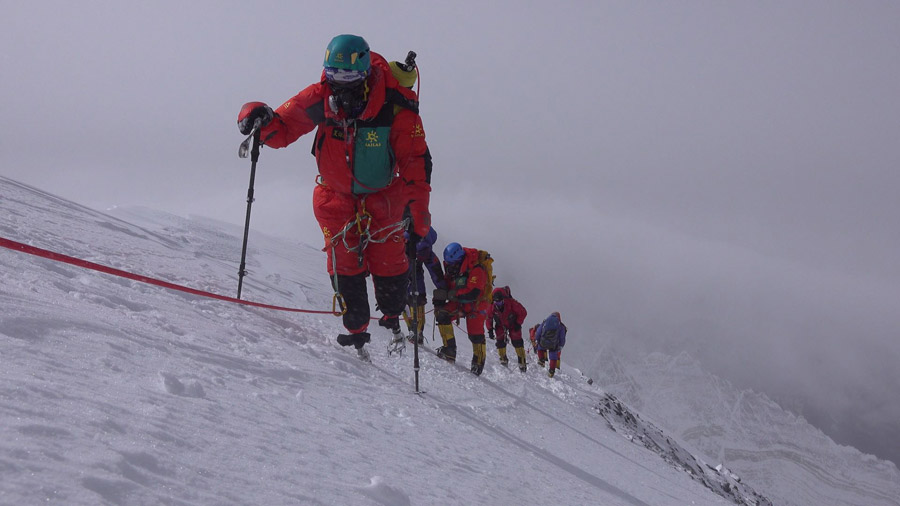Chinese amputee takes on a mountain
By Cheng Lu and Ni Yuanjin Xinhua | China Daily | Updated: 2018-05-29 09:29

Xia Boyu, 69, reached the summit of Mount Qomolangma, the highest mountain in the world, on May 14, seven days after leaving his base camp on the Nepal side of the mountain.
What's remarkable, however, is that Xia has no legs of his own. He's a double amputee.
"I knew I would make it to the top sooner or later, but I didn't expect it to take 43 years," said Xia, who is recovering from frostbite in a Beijing hospital.
He failed to summit the 8,844-meter peak four times before becoming one of the few double amputees to reach the top. In 2006, New Zealand climber Mark Inglis became the first double amputee to reach the summit.
Although it took Xia decades to realize his dream, he lingered less than 10 minutes at the summit because of a storm. In those 10 minutes, he did several things. Gripping his poles and teetering on his titanium alloy prostheses, he looked down on the mountain that took his feet from him in his first attempt more than four decades ago.
Then he called base camp where staff patched him through to his wife in Beijing.
"I'm finally standing at the top of Qomolangma, which I have been dreaming about for 41 years," he announced in a trembling voice.
He had planned to take two pictures - one holding high a Chinese flag, and another lifting his pole to the sky, oxygen mask removed to show his face. But the plan didn't work out.
"Several climbers who were already at the top rushed to take photos with me. When I tried to take a selfie, an incoming storm forced me to descend," he said.
Then, facing into the wind, he forced his body to carry on down the mountain, knowing that the struggle had only just begun.
His artificial legs have no feeling. He uses twice as much energy as fully able mountaineers. Low temperatures and the strain of hiking caused his stumps of legs to swell, so that the prostheses didn't fit as they should. Many times, his feet got stuck in cracks in the ice and his Sherpa guide had to help pull his legs out.
Then there was the snow. The lenses of his glacier glasses were covered with a layer of ice.
"Everything was white. I couldn't see clearly. I thought I was finished. The only thing I could do was to hold tight to the rope and keep moving on," he recalled.
It took Xia two days to descend to base camp, more than 3,000 meters below.
























